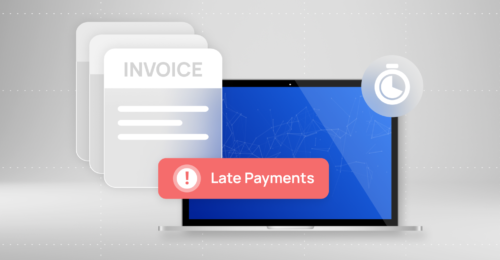- Payment gateway
- Blog
- Opening High-Risk Merchant Accounts in the UK: A Comprehensive Guide
Opening High-Risk Merchant Accounts in the UK: A Comprehensive Guide
The modern financial landscape makes businesses categorised as ‘high risk’ face hurdles when seeking standard merchant accounts from traditional banking institutions in the UK. However, for those operating in such sectors, understanding high-risk merchant accounts becomes imperative. This comprehensive guide aims to demystify the process of opening a high-risk merchant account in the UK and explores how partnering with a high risk payment gateway uk can ease the path for businesses navigating this field
Understanding High-Risk Merchant Accounts
High-risk merchant accounts cater specifically to businesses deemed ‘high risk’ due to various factors like industry type, new ventures, high-value transactions, or poor credit ratings. The process of securing a merchant account, usually straightforward for many businesses, becomes more complex for those categorised as high risk
Identifying High-Risk Businesses: Understanding the Criteria
To some extent, the perception of risk varies among payment processors, each having its own set of risk standards. Certain indicators may signal a business’s high-risk status, including:
A monthly sales volume exceeding £15,000 or an average credit card transaction value surpassing £400 might raise red flags
Businesses needing to accept multiple currencies often face higher scrutiny due to increased complexity and potential risk
A poor credit rating, as well as lack of credit history could label a business as high risk, impacting its ability to secure a merchant account through conventional channels
Businesses offering digital or abstract products like software, tickets, or bookings often encounter higher risk assessments due to potential chargeback issues
A record of significant chargebacks can significantly impact a business's risk profile, prompting providers to categorise it as high risk
Businesses extensively dealing in international transactions, particularly in countries with a higher chargeback risk outside regions
Understanding these warning signs can assist businesses in comprehending why they might be categorised as high risk by certain payment processors
Industries with Greater Risk
Furthermore, various industries carry a higher likelihood of chargebacks or fraud, leading payment processors to classify them as high risk. These industries encompass:
- Holiday and Travel Services
Long periods between payment and service delivery heighten chargeback risks
- Antiques, Electronics, and Vape Shops
Products susceptible to disputes or refunds elevate the risk perception
- Consultancy and Agency Services
Offering intangible services could lead to higher chargeback potential
- Health and Wellness Products
Products with varying efficacy or consumer satisfaction might trigger chargebacks
- Nightclubs, Events, and Ticketing Services
High instances of last-minute cancellations or dissatisfaction can lead to disputes
- Alcohol
Sales of age-restricted products like alcohol evolving regulations and elevate risk levels
- Debt Collection Agencies and Payday Loans
Inherent risks associated with the nature of services offered by these entities increase the likelihood of disputes
- Adult Entertainment and Gaming
Highly regulated industries with increased vulnerability to fraudulent transactions and disputes
- Subscription Services, Online Auctions, and Affiliate Marketing
Continuous or one-time payments, coupled with consumer behaviour patterns, contribute to the perceived risk
- Charities and Nonprofits
Despite noble causes, the lack of tangible goods or services sometimes makes tracking and validating transactions challenging, leading to potential chargeback issues
The diverse range of industries perceived as high risk stems from the potential for chargebacks or fraud, indicating the importance of understanding risk factors within specific business sectors
The nuanced nature of risk evaluation in the payment processing landscape requires businesses to grasp the multiple facets that contribute to the ‘high risk’ classification. Recognising these indicators and industry-specific risks is crucial for businesses seeking to navigate the complexities of securing high-risk merchant accounts

Addressing High-Risk Merchant Account Challenges
For businesses with bad credit ratings, obtaining a merchant account through conventional means might prove challenging. However, some of uk high risk payment gateways offer features without running credit checks, enabling businesses to start accepting payments without the ‘high risk’ label
Pros and Cons of High-Risk Merchant Accounts
While high-risk merchant accounts involve higher fees, a complex approval process, and longer processing times, they offer several advantages:
- Ability to sell globally and accept multiple currencies
- Conduct business in highly profitable but labelled ‘high-risk’ sectors
- Increased chargeback protection compared to standard merchant accounts
Partnering with Payment Gateways
Partnering with reputable high risk payment gateway uk significantly eases the process of opening a high-risk merchant account. Such gateway offer secure, seamless payment processing solutions, often tailored to high-risk businesses’ unique needs. Navigating the landscape of high-risk merchant accounts demands thorough understanding and strategic decisions. Partnering with a uk high risk payment gateway can streamline operations and provide essential support, ensuring businesses in these sectors can thrive amidst the challenges
Conclusion
While high-risk merchant accounts entail higher fees, complex approvals, and stringent regulations, they also offer global reach, increased chargeback protection, and opportunities for businesses to thrive in sectors often labelled as ‘high risk’. Awareness of industry-specific risks, adherence to compliance standards, and strategic partnerships with payment gateways become pivotal for businesses seeking success in sectors deemed ‘high risk’. By comprehensively understanding the nuances of high-risk merchant accounts, businesses can navigate challenges effectively and carve a path towards sustained growth in their respective industries










